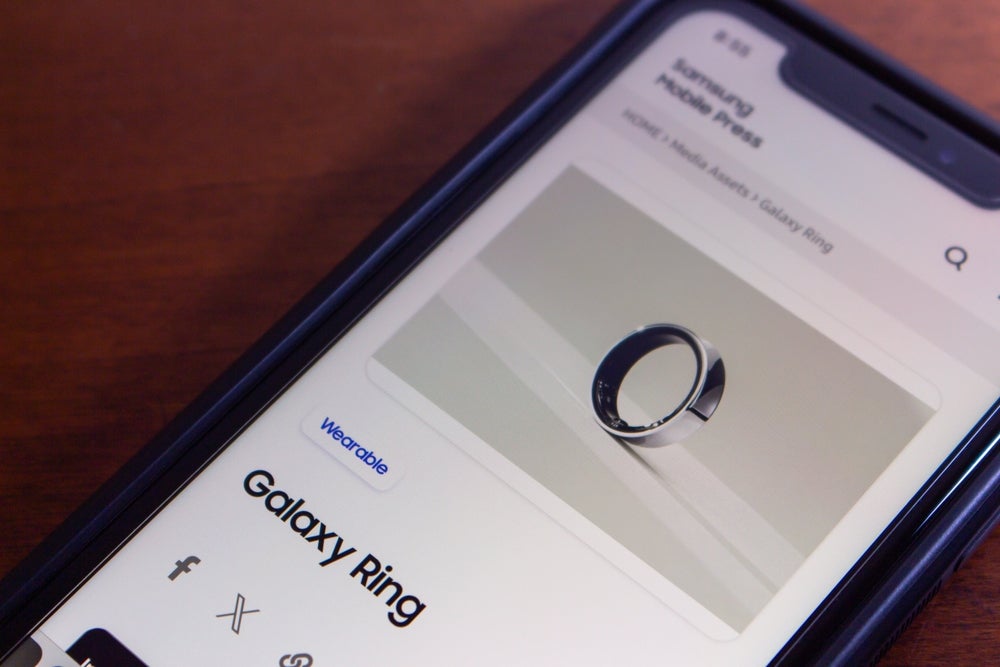
Yuval Rechter is taking the market downturn seriously. The murky outlook of the world’s economy has taken many of his fintech peers by surprise, but the US general manager of neobank Revolut says the challenger bank is ready for it. To him, threatening recessions are nothing new.
He saw it happen in 2008. In July that year, Rechter had just completed his finance studies at Reichman University. Now, he was searching for an internship. While he had been shortlisted to join Lehman Brothers, he was eventually turned down. Instead, he ended up as an intern at investment banking giant Goldman Sachs. He was thrilled.
“[I was] a bit naive, thinking that life was going to be amazing,” Rechter recalls.
The internship turned out to be a trial by fire. Over the next few months, Rechter found himself taking a front row seat to the Great Recession that engulfed the planet between 2007 and 2009. What had started as the boom and bust of the US housing market ended up sending ripples that turned into a tsunami that swallowed the world in the biggest financial meltdown since the Great Depression.
“Everyone was just really fighting for their lives,” Rechter tells Verdict.
While Goldman Sachs survived, Lehman Brothers collapsed in September 2008 in the climax of the subprime mortgage crisis. Rechter now says that being turned down by the imploded bank proved to be a blessing in disguise.
How well do you really know your competitors?
Access the most comprehensive Company Profiles on the market, powered by GlobalData. Save hours of research. Gain competitive edge.

Thank you!
Your download email will arrive shortly
Not ready to buy yet? Download a free sample
We are confident about the unique quality of our Company Profiles. However, we want you to make the most beneficial decision for your business, so we offer a free sample that you can download by submitting the below form
By GlobalDataThe world economy recovered over the next 10 years. For many people who entered the fintech industry in that decade, that meant that they had only lived through a booming bull market. Investment into fintech startups soared during the decade. There seemed to be no bear market in sight. This didn’t calm Rechter.
"As someone that has experienced a downturn, I can tell you that in the past seven years, I have [been asking myself when] 2008 [will] come again," he says. "So I'm not shocked right now [that the bad times are back]."
The weather conditions for the market have soured in 2022. A perfect storm has rolled in across the world. Dark clouds cast a black shadow over the planet's economies. Factors like Russia's invasion of Ukraine, the fallout from the pandemic and soaring inflation have put countries' finances in a bad place. Whispers about the threat of recession are growing increasingly louder by the day.
The tech sector has been hit particularly hard hit. Venture capital investment has seemingly dried up, companies have gone bust and Big Tech firms are flailing on stock exchanges. Market watchers believe these setbacks could be the overture for the popping of the tech bubble, akin to the dotcom boom in the noughties.
How will Revolut ride the downturn?
The fintech industry has not been left untouched by the market turmoil. Investment in the sector cooled down over the first seven months of 2022. Buy-now-pay-later (BNPL) icon Klarna, which for a while held the title of being Europe's most valuable private fintech company, suffered a down round in July that shaved billions of its valuation. The Swedish shopping startup's valuation dropped from $45.6bn to $6.7bn.
The crown now rests on Checkout.com's figurative head after it achieved a $40bn valuation in January. Revolut comes in third place with a valuation of $33bn, which it achieved last summer. Rechter's press person informed Verdict prior to the interview that he wouldn't answer any questions about potential funding rounds.
Publicly traded fintech companies like Block, Robinhood and Coinbase have seen their shares spin into freefall so far this year, slicing billions off their market cap. The market slump has also started to reap its first victims with cryptocurrency lenders Voyager and Celsius filing for bankruptcy in July, following the path of one-click checkout startup Fast crashed in April.
Several companies have also announced mass-layoffs over the past few months. Klarna, payment processing startup Bolt and tax credit venture MainStreet are some of fintechs that have cut down their staff.
In short: things aren't looking too good for the fintech industry. Despite the gloomy outlook, Rechter is bullish about Revolut's ability to not only survive the meltdown but to find itself to be thriving once the smoke clears.
"We're just being a bit more conservative, going back to basics [and making] sure there is revenue," he says, adding that it will focus on its core services such as banking accounts and strengthen its cross-border transfer capabilities as well as boosting its cryptocurrency services.
That being said, there are some good indictors for the company. Contrary to many other companies in the sector, Revolut is actively looking to expand its workforce.
"We are hiring in the places where we believe [it will have] the most significance in order to allow us to keep this growth momentum," Rechter says, noting that the US branch has 150 employees already and that it's expecting to add to them soon.
The USA expansion is a key part of the Revolut masterplan to come out as a winner from the market slump.
Revolut hopes to make it big in the USA
CEO Nikolay Storonsky and CTO Vlad Yatsenko founded Revolut in London in 2015. Since then, the digital lender has become an international powerhouse catering to some 20 million personal customers across Europe, Asia and America.
Like many other fintech firms, Revolut has had its eyes on the USA for a long time. Revolut launched in the USA in March 2020. While it didn't have a banking licence of its own, the UK-headquartered neobank was still able to issue debit cards in the States by piggybacking on its local partner bank's – Metropolitan Commercial Bank – banking licence. Most European challenger banks that have been able to launch their services in the US rely on such partners.
However, relying on another entity means the challenger bank wouldn't take home as much of the profits and stunted its independence. So it hardly shocked anyone when Revolut applied for a banking licence in the USA in March 2021. The draft application was sent to the Federal Deposit Insurance Corporation, and the California Department of Financial Protection and Innovation.
“A US banking license would ultimately enable us to provide US customers with all the essential financial products and services they can expect from their primary bank including loans and deposits," Storonsky said at the time, adding that Revolut was "on a mission to build the world’s first global financial super-app, and pursuing a US banking license is an integral part of the journey.”
By super app, the CEO envisioned a one-stop shop for all customers' financial needs.
Revolut has remained reasonably mum about the application since then. While we would've loved to ask Rechter about how it's going, the Revolut press person said it's a company-wide policy not to discuss ongoing licence applications.
That being said, applying for a US banking licence is not for the faint of heart. Is an arduous process, often requiring years of cutting through red tape caused by the fragmented state of the US' financial laws.
Revolut rival Varo Money famously waited over three years and suffered through several application rounds before it was approved for its licence in 2020. Revolut's European competitor Monzo has previously applied for a permit but withdrew its application in October last year.
As a side note, in June Storonsky criticised the UK Financial Conduct Authority for its slow progress towards granting the bank a banking licence, despite having filed for a British licence in January 2021 following Brexit. Storonsky was named the UK's first tech billionaire in 2020
Competing with other neobanks
While Revolut doesn't have a banking licence to independently operate in the USA, Rechter is bullish about the fintech firm's ability to establish itself as the financial super app of choice in the country.
That may be a hard ask. Not only must the company cut through oceans of regulations and survive the market slump, but Revolut must also face-off with other neobanks already operating in the USA.
Chime, Varo and Current are just three US-based neobanks that have raised millions of dollars over the years, empowering them to attract millions of customers. They arguably have the home-field advantage. If nothing else, they are known to the average American looking for a new digital bank provider. In fact, Recther himself admits that he didn't even know about Revolut until the neobank reached out to him to offer him the role His interest piqued, the would-be executive looked into the service and he was taken aback by what he saw.
He claims to have been taken back by the solutions Revolut had to offer. He was especially impressed by its no-fee cross-border transfers.
"I started using [its cross-border no-fee transaction service] and said, 'wow, I just save so much money. This is just too good to be true,'" Rechter recalls, claiming that he was shaken when he found out how much traditional banks pay for similar services.
Not only did that convince him to join the company, it's also the core of his belief that Revolut can make it big in the USA.
"That's the honest truth," Rechter says. "I don't see a better a better offering anywhere else right now in the US market."
A second potential advantage identified by him is the fact of Revolut's international scope.
"We are a global retail bank, [which is] a big aspiration and a really big advantage," he says, adding that this means that "when you travel anywhere, [the service] is exactly the same like you have with your phone. I think that's our biggest advantage."
While Revolut has been operating in the USA for two years, Rechter describes the company's efforts so far as a "soft launch" enabling the local team to find its footing.
"We're seeing some great traction [and] we already have half a million customers in the US, but really we're just getting started," he says.
Half a million users may seem reasonable, but one shouldn't forget that German neobank N26 boasted similar numbers in the US last year when it decided to wind down its American operations. In a blog, N26 chief growth officer Alex Weber said it would require too big investments to realise the challenger bank's potential Stateside, which is why it decided to deprioritise it "in order to sharpen our strategic focus on the important role we have to play as a pioneer in digital banking in Europe."
Rechter says he can't comment on N26 up-sticking from the States as he didn't work for it. Still, he believes that Revolut can cut through the noise with its current offering and the launch of new features down the road.
"I think you'll start seeing some significant growth towards the end of the year and 2023 once we feel that those products are the best in market and some products will be out in the market," he says.
In terms of what those planned new services are, Rechter remains tight-lipped, but says that "BNPL might be one of them."
Could Revolut plan to launch BNPL services in the USA?
It is unsurprising that BNPL might be on the horizon for Revolut's US expansion. BNPL businesses like Klarna, Affirm and Block – through its acquisition of Afterpay – have made massive waves over the past two years. They shook up the ecommerce landscape during the course of the pandemic by providing self-isolating and cash-strapped shoppers with a way to alleviate some of the lockdown boredom without, arguably, breaking the bank.
Although, market watchdogs and consumer advocacy groups have contended that last part, fearing that the BNPL industry could put customers' financial wellbeing at risk. Regulators and politicians have taken these concerns seriously. Law makers on both sides of the Atlantic are now working on new regulations to reel in the soaraway BNPL industry.
Nevertheless, the success of BNPL providers has encouraged other financial service providers to stomp right into the middle of the buzzing market, providing instalments solutions of their own. Traditional payment processing providers like PayPal and Mastercard have launched BNPL solutions. Fintech titan Block, previously known as Square, has bought Australian Afterpay to get in on the action.
Even Big Tech firms are punching for a place at the BNPL table. Apple has been rumoured to be gearing up to muscle into the market since last summer. The company made it official in June 2022 by announcing the rollout of Apple Pay Later in the States.
Challenger banks are no different. Revolut rivals Monzo and Lunar have both launched similar services in 2021and 2020 respectively.
Arguably a bit late to the party, Revolut finally sauntered up to the shindig and unveiled its own BNPL service in June this year. The service will first be rolled out in Europe this year.
Rechter remains reluctant to confirm whether or not BNPL is on the horizon, satisfying himself by saying that it might be. While not committing to anything, he hints that Revolut could also potentially work on a service to help users improve their credit score.
"I'll give you a hint: for the US consumer it is incredibly important to have a good credit score," he says. "It's different and something that we take very seriously. [I] can't say exactly how it's going to be built, but it's something that we understand [is important]."
GlobalData is the parent company of Verdict and its sister publications.






